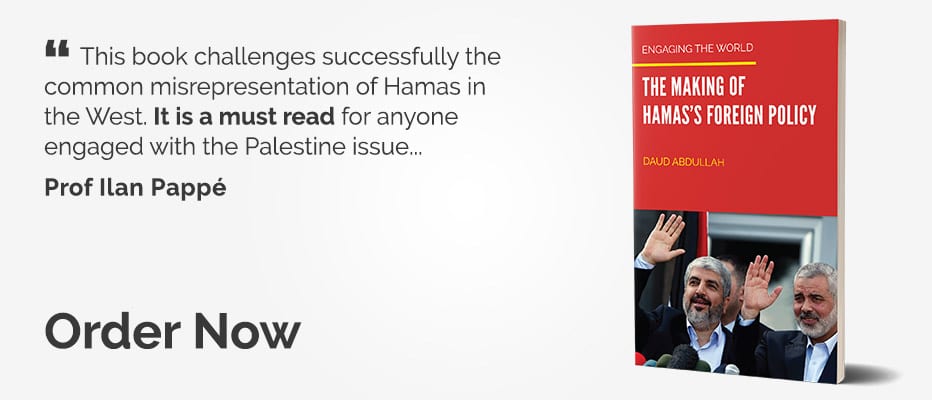According to Winston Churchill speaking after World War Two, history teaches us that there are no lasting friends and no lasting enemies, only lasting interests. In other words, in politics you have to be pragmatic. That is what "realpolitik" is all about.
Egypt and Turkiye haven't gained much from the past ten years of a very tense relationship. They have not been estranged, because relations were not completely severed, but they were undoubtedly affected negatively. Nevertheless, economic and trade relations continued and actually increased in volume, even though trade agreements expired and were not renewed.
Turkiye has 70 factories in the major industrial zone in Egypt's Sixth of October City. There are also many privately-owned factories with Turkish investors encouraged by Ankara across several governorates in Egypt; they employ thousands of Egyptian workers and their products are exported around the world with "Made in Egypt" labels. Both countries want these investments to continue and even develop because it serves their interests, so they were not affected by the cool diplomatic relations.
Production was not stopped despite the irresponsible campaigns launched by Egyptian media against Turkiye and President Recep Tayyip Erdogan personally. These campaigns died down after Egyptian President Abdel Fattah Al-Sisi had a friendly meeting with Erdogan during the FIFA World Cup in Doha last year. They stopped completely after Erdogan won another presidential term and Al-Sisi congratulated him; this was followed by exchange visits by their foreign ministers. Al-Sisi is scheduled to visit Turkiye later this month, after which Erdogan will go to Egypt.
Russia's presidential envoy to Syria: Erdogan, Assad to meet soon
Getting relations between Egypt and Turkiye back on track will help restore stability to the Middle East, and enable it to tackle the major challenges facing its people. The worsening crises affect all countries in the region, without exception.
Both Egypt and Turkey, for example, face real threats to their national security given the major geopolitical changes and the emergence of new alliances on the world stage. This is especially the case following Russia's invasion of Ukraine and the resultant economic crises; the world has been split between those supporting Russia and those backing Ukraine. This has forced Cairo and Ankara to rise above their differences, be pragmatic, and form a single front so that they can overcome the threats for the benefit of their common interests in a way that guarantees the preservation of their national security and stability.
Who among us does not wish for the rift between rival Muslim countries to be fixed? We want the Islamic body to recover and become a strong, stable structure that can tackle the great challenges imposed on it by the enemies of the Ummah who plot against it around the world. This will not happen unless the leaders of the Muslim countries unite around the major objectives of the Ummah; they must redefine who their friends and foes are. The clarity has been lost in the mad struggle and fierce competition to lead the Muslim world. Our enemies have taken advantage of this, and humiliated one Muslim country after another.
Turkiye's Aksam newspaper reported in September 2019 that negotiations were taking place between the Egyptian and Turkish intelligence agencies, at Cairo's request — this was not denied by Egypt — which indicates that reconciliation has not just happened in a political vacuum. There have been some serious and calculated steps in almost four years of steady rapprochement between the two countries.
In terms of regional benefits, arguably the most immediate and important is in Libya and ending the civil war there. Although Egypt is part of the axis that supports General Khalifa Haftar, and Turkey backs the internationally-recognised government, they were able to stop the war that had lasted six years and save Libya from division, achieving a common goal. There is no doubt that forming the transitional government with names from both sides of the conflict contributed to the course of Turkish-Egyptian relations.
Egypt: Can Sisi reconcile with the Muslim Brotherhood?
No one can erase history and geography, or their influence on people. Egypt and Turkiye have deep historic ties, dating back to the Mamluk era, who were originally Turks who ruled Egypt, the Levant, Iraq and parts of the Arabian Peninsula between the mid-13th century and the early 16th century. Egypt then became an independent province within the Ottoman Empire for more than three centuries. That lengthy Turkish presence in Egypt reinforced the social ties between the Egyptians and the Turks. Many Egyptians trace their lineage back to the Turks, and vice versa, revealing the roots that bind the two peoples.
Egyptian dialect still contains words taken from Turkish, and Egyptian cuisine includes delicious Turkish dishes. The cities of Egypt are filled with Ottoman and Mamluk influences and architecture, and street names reflect the Turkish heritage, even though one famous thoroughfare in Cairo, Sultan Selim I Street, was rather childishly renamed.
Egypt and Turkiye are two great countries that share moral, social and cultural values. Perhaps the appropriate sentence to conclude this article comes from President Erdogan: "The friendship between the Egyptian and Turkish peoples is greater than the relations between the Egyptian and Greek peoples." The people of both Egypt and Turkiye will be happy with their reconciliation, which will have a positive impact across the entire region.
The views expressed in this article belong to the author and do not necessarily reflect the editorial policy of Middle East Monitor.

![A flag of Egypt and Turkiye seen at the Beyazit square in Istanbul on February 4, 2011 [BULENT KILIC/AFP via Getty Images]](https://i0.wp.com/www.middleeastmonitor.com/wp-content/uploads/2023/07/GettyImages-1241912337-scaled-e1688736305332.jpg?resize=1155%2C770&quality=85&strip=all&zoom=1&ssl=1)


